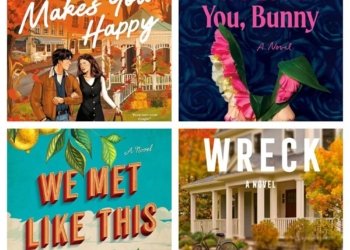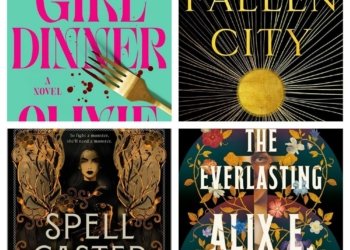No products in the cart.
A Conversation with Robert Herold, a Supernatural, Horror Author
Seattle resident Robert Herold is the author of The Eidola Project books, a series of supernatural adventure novels set in the 19th century.
770
SHARES36.5k
VIEWSSeattle resident Robert Herold is the author of The Eidola Project books, a series of supernatural adventure novels set in the 19th century. The books follow a team of ghost hunters, headed by Harvard professor William James, who become ensnared in deadly supernatural investigations.
The first in the series, The Eidola Project, won the Reader Ready Award, and book two, Moonlight Becomes You, earned two first-place wins, including “Best Novel” by the Southeastern Writers Association. Book three, Totem of Terror, was released in June of 2022.
In his own words:-
The supernatural has always had the allure of forbidden fruit, ever since my mother refused to allow me, as a boy, to watch creature features on late night TV. She caved in. (Well, not literally!)
While other kids my age wanted to grow up to be doctors, firefighters, spacemen, and the like, I wanted to be a werewolf. As a child, fresh snow provided me the opportunity to walk out onto neighbor’s lawns halfway and make paw prints with my fingers as far as I could stretch.
I would retrace the paw and boot prints, then fetch the neighbor kids and point out that someone turned into a werewolf on their front lawn! (They were skeptical.)
I have pursued many interests over the years (including playing the sax and flute, and teaching middle school history for 36 years), but supernatural writing always called to me. You could say that I was haunted. Ultimately, I hope my books give you the creeps, and I mean that in the best way possible!
Let’s get started with a quick rapid fire.
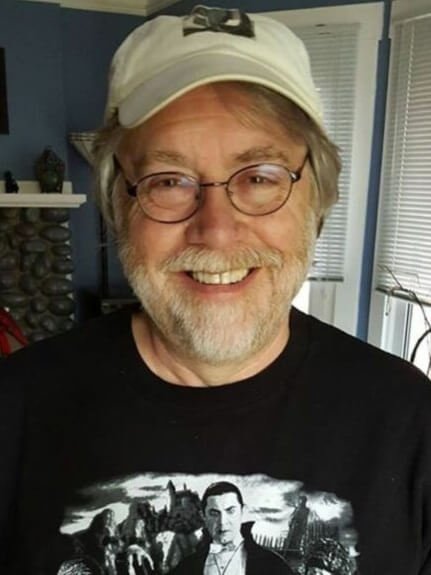
Q1. If you could be transformed into one mythological creature, which one would you choose?
As a boy, when other kids wanted to grow up to be doctors, lawyers, firefighters, I wanted to be a werewolf. I’ll stick with that!
Q2. What is one thing you wish you enjoyed more?
Coffee. I live in Seattle, the home of Starbucks, but I hate coffee. It’s a lonely town…
Q3. What are the least-likely three words someone would use to describe you?
Tall, skinny, mean.
Q4. Where did you go on your last vacation?
New York City. My wife and I love to binge on theatre, ethnic food, music, and museums.
Q5. Would you rather find your dream job or win the lottery? You can’t do both.
Dream job (gosh, I’m doing that!)
Q6. What is one thing you regret spending money on?
A recent promo service for one of my books. ☹
Q7. What object do you misplace or lose the most?
My mind.
Q8. What secret about the universe would you most want to learn?
How to fold a fitted sheet.
Q9. Favorite Holiday Destination.
New York City. I enjoy visiting any time.
Q10. What was one “before” and “after” in your life?
My first book.
Q11. What do you think people misunderstand about you?
That I’m a werewolf. (Only want to be one!)
It’s time for a more detailed conversation, Robert.
You’ve answered our rapid fire brilliantly, Robert. Now, it’s time for our readers to know more about the person behind the book.
Q. Tell us something about yourself that’s going to keep us wanting more.
I achieved my dream of becoming a werewolf as a teenager! I volunteered for a Halloween Haunted House for charity, sponsored by a local radio station. I helped with the construction, then got to perform in the haunted house. One night, I was made up to be a werewolf in Frankenstein’s laboratory. While the monster lurched around, I got to spring at people and scare them. It was a howl. The problem came when I… (I’ll think I ‘ll stop there to leave you wanting more!)
Q. Well, that’s just…memorable for sure. So, what books have you read more than once in your life?
A couple of my all-time favorite books are The Maltese Falcon by Dashiell Hammett, a perfect mystery novel. The other is Something Wicked This Way Comes by Ray Bradbury, a wonderful horror novel involving a mysterious carnival that comes to a small town.
Q. Interesting. Who has been the biggest supporter of your writing?
My wife has been super supportive of my writing. In fact, I let her read a novella I had written just before we started dating. She stayed up all night reading it, instead of studying for an Anatomy and Physiology exam the next day at the university. (She still got an “A” on the test!) It was probably why she agreed to marry me when I popped the question a few weeks later!
Q. Do you hide any secrets in your books that only a few die-hard fans will find?
Yup. In my contributions to the Friday the Thirteenth series, many things in the stories are connected to bad luck and/or the number thirteen. These include a broken mirror, a black cat, a murder and many less obvious things that are included a bonuses for careful readers.
Q. For an author, what do you think is worse – negative reviews or zero reviews?
Zero reviews are the worst. When a book or story first comes out, there is both excitement and trepidation – will anyone read it?? Negative reviews are typically balanced out by lots of positive reviews. Ultimately a book is matter of taste and values. If statements or actions by a character run counter to someone’s values, some people have difficulty awarding the book a good rating, even if the book is well-written and the issue is an important element to the story &/or character development. That, or a person might be having a bad day, week, or year, and decide to take it out on an author. Oh, well. You move on. You have to develop a thick skin to put your work out there for public consumption.
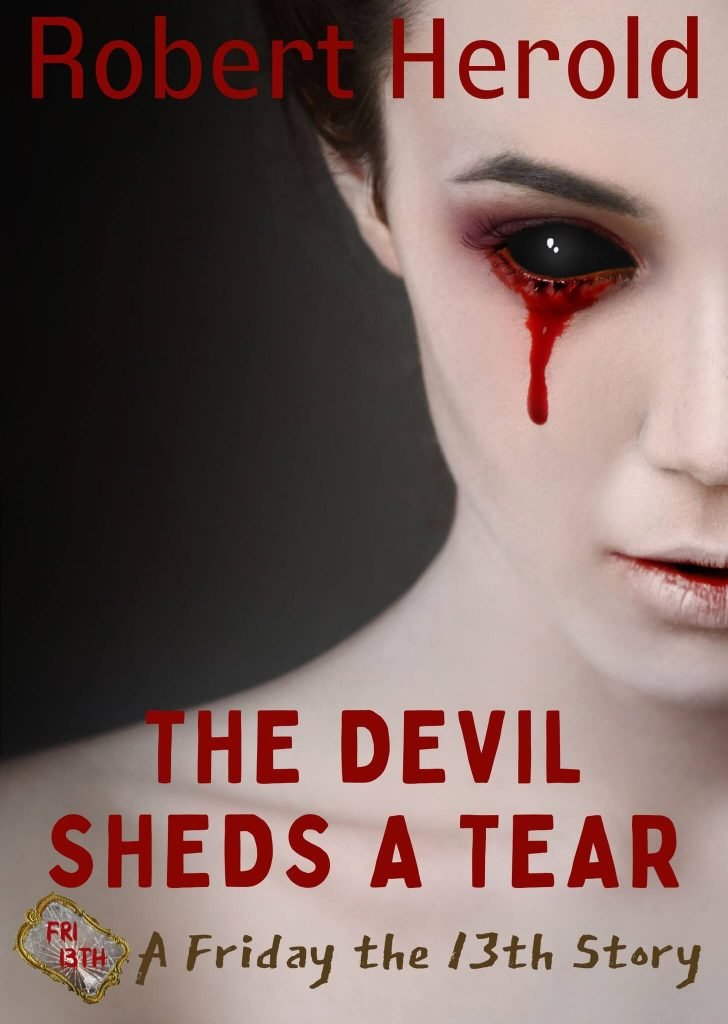
Q. What comes first for you — the plot or the characters — and why?
I often come up with a precipitating idea and main characters simultaneously. I visualize scenes in my head and then try to capture them on paper. Perhaps that’s why many people tell me my books read like a movie.
Q. How do you plan your plot and characters?
Once I have the main premise of the book and the characters, I come up with an ending. I think this where many beginning writers make a mistake. They have a great idea, but when they get halfway through they don’t know where they’re going and stop. After coming up with an ending, I think up several major plot events and then start writing. I don’t plan everything out in minute detail because I want the thrill of discovery as I’m writing. Throughout, I’m asking myself what’s the worst that can happen to my characters?
Q. You got 100 points. You need to divide them on the basis of how relevant and important they are to you as a reader and a writer for your book or someone else’s as a reader. Your options are Plot/Story, Book Cover, Marketing, and, Reviews.
Plot/Story=40 , Book Cover= 25 , Marketing=15 , Reviews=20.
Q. So, now, about your book. Talk to us about it. No major spoilers.
My Eidola Project novels follow a group of ghost hunters in the 19th century who become ensnared in deadly investigations of the supernatural. The Eidola Project has the group coming together and then investigating a haunted house. Book two, Moonlight Becomes You, follows the team when they are asked to stop werewolf attacks on a Black community. Book three, Totem of Terror, has the group assisting a Native American village that is being terrorized by a murderous shape-shifting demon.
My Friday the 13th stories (Witch Ever Way You Go and The Devil Sheds a Tear) are set in the modern day and are about a grad student who has been targeted for execution by a bloodthirsty coven of witches.
Q. What part of the entire book publishing process, starting from the plot idea to the book anniversary, do you find tough or tricky?
It’s all tricky. My Eidola Project novels are published by a small press, and while they have been wonderfully supportive and I’ve learned a ton working with them, promotion is largely up to me. It’s been a lot of trial and error. The important thing, as with writing, is to keep going. No one is going to know about your books if you don’t put yourself and your work out there for people to discover. When they do, it’s immensely rewarding.
Q. What is your kryptonite as a writer?
Spelling has always been difficult for me. For years I never thought I could pursue writing because of this. Thank goodness for modern writing tools. They’ve been really helpful, but they don’t catch everything. I’ve learned to take my time and work hard to achieve my best work.
Q. What risks have you taken with your writing that have paid off?
The whole process is a matter of risk-taking. You invest blood (of course–I do write horror!), sweat, and tears to produce a work of fiction with only a hope that others will read and enjoy. Again, when that happens, especially when they write a glowing review, it’s very gratifying.
Q. Let’s talk about the process of writing. Do you do research while writing a book to add more authenticity? What kind and how far do you go – ever travelled to a foreign place or learned some skill, just for the sake of your book?
I do a lot of research, especially for my Eidola Project series. Since it’s set in the 19th century, I want them to be historically accurate in all but the horror elements. This realism, I believe, adds to the power of the horror making it too seem real (verisimilitude).

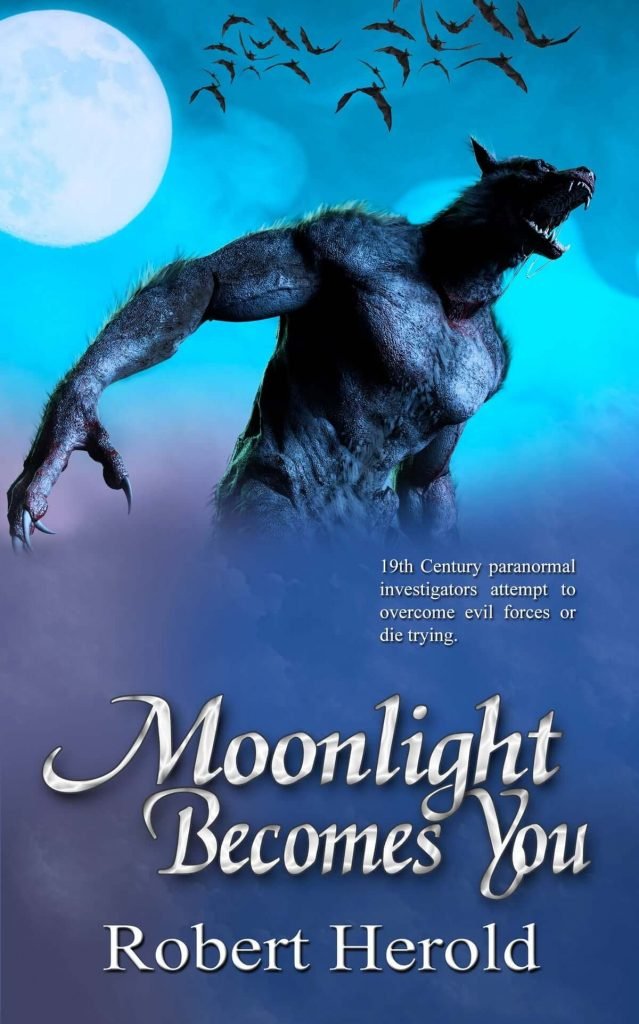
Q. What was your hardest scene to write?
When a character I cared deeply about had to die. I remember reading that Dickens was haunted by the death scene of Nancy when he did his public readings of Oliver Twist. There is a saying amongst writers that you should “kill your darlings.” This applies to trite and overly clever passages in your work that don’t contribute to the story. However, sometimes we must kill characters who are darlings to us, and that is hard indeed.
Q. What is the best money you’ve ever spent with regard to your writing?
Buying a computer was the best money I ever spent! I’m old enough to remember having to pound out my work on a typewriter! There was a learning process, early on—most notably when I was once writing an exciting scene of a chase and murder. When I finished, I leaned back to stretch and kicked the plug out of the wall. (This was before auto-save!)
Q. Well, this has been great. Now, before we wrap this up, do you have any suggestions to help someone become a better writer? If so, what are they?
Place seat in chair on a regular basis and don’t stop writing (okay, you can stand if you can write that way). Come up with an ending first, so you have a direction to your work. Also, put your inner critic in a lockbox. Don’t let him/her/it out until you are editing, and only if it’s on good behavior. Work hard. Know that writing is hard work, but it’s delightful and gratifying too. Tenacity and willingness to grow and learn are just as important as creativity.
Related Posts
10 Most Anticipated Contemporary Books of Fall 2025
As the leaves begin to change and the air turns crisp, fall brings with it a sense of renewal, not...
10 Most Anticipated Science Fiction and Fantasy of Fall 2025
As the leaves begin to change and the air turns crisp, fall 2025 is shaping up to be an exhilarating...
8 Most Anticipated Romance Books of Fall 2025
As the leaves begin to turn and the air fills with the crispness of autumn, there's something magical about curling...
8 Most Anticipated Horror Books Coming in 2025
As the shadows lengthen and the chill of autumn sets in, horror enthusiasts are already buzzing with excitement over what...
Please login to join discussion
About Us

Trenzle
Where Trends are made and discovered
Trenzle is your official source of discovering the latest people, work, and ideas that deserve to trend. Discover Authors and their books, Creators and their work, People and their opinions, and Stories from around the globe.
Learn more
Latest Posts
Trenzle Top 10 Trending Free Book Deals for October 27, 2025
October 27, 2025
10 Most Anticipated Contemporary Books of Fall 2025
October 15, 2025
Trenzle Top 10 Trending Free Book Deals for October 11, 2025
October 11, 2025
Categories
© 2023 Trenzle - Online Author News & Magazine




